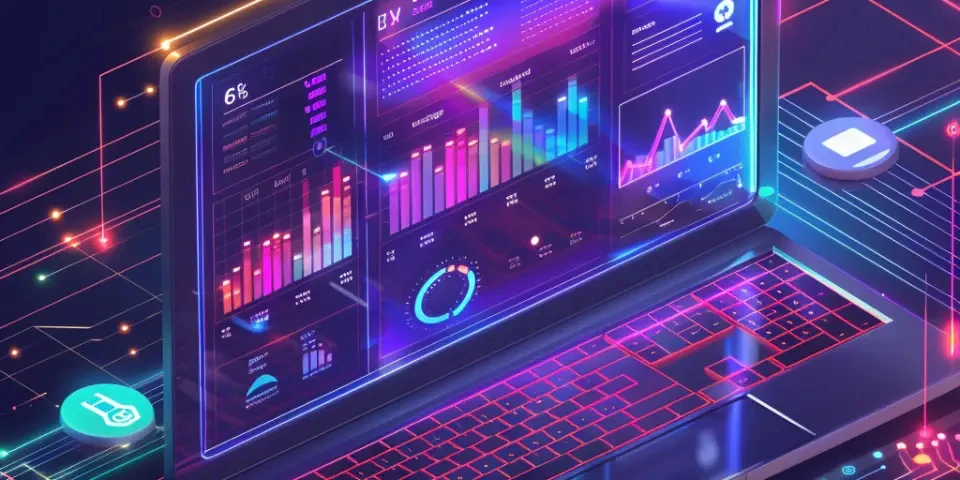Unleashing the potential of AI for personalized healthcare solutions
The advent of Artificial Intelligence (AI) has revolutionized various industries, and one sector that stands to benefit immensely from its capabilities is healthcare. AI has the potential to revolutionize and personalize healthcare solutions, providing individuals with tailored and effective treatments. In this article, we will explore how AI can unleash its potential in several aspects of personalized healthcare.
1. Early Detection and Diagnosis
AI-powered algorithms can analyze vast amounts of medical data, including patient history, test results, and genetic information, to identify patterns and detect diseases at an early stage. This enables healthcare professionals to provide timely interventions and improve patient outcomes.

2. Personalized Treatment Plans
By harnessing AI, healthcare providers can develop personalized treatment plans based on an individual's unique health profile. AI algorithms can consider various factors such as genetics, lifestyle, and medical history to tailor treatments and medications for optimal results.
3. Predictive Analytics
AI can predict disease progression and identify potential risks by analyzing large datasets. This enables healthcare professionals to intervene proactively and prevent the development of severe health conditions.
4. Virtual Assistants and Chatbots
AI-powered virtual assistants and chatbots can provide personalized healthcare information and guidance to individuals. They can answer queries, provide medication reminders, and even assist with mental health support, making healthcare more accessible and convenient.
5. Robotics in Surgery
AI-driven robots can assist surgeons during complex procedures, enhancing precision and reducing the risk of errors. These robots can analyze real-time data and perform tasks with greater accuracy, ultimately improving patient safety.
6. Drug Discovery
AI algorithms can analyze vast amounts of data and accelerate the drug discovery process. By understanding complex molecular structures and exploring drug interactions, AI can identify potential drug candidates, leading to more efficient and personalized treatments.
7. Remote Patient Monitoring
AI-powered devices can continuously monitor patients' health remotely, collecting real-time data. This enables healthcare professionals to detect any changes or anomalies promptly and take necessary actions, especially for individuals with chronic conditions.
8. Mental Health Assessment
AI can aid in the assessment and screening of mental health conditions. Using natural language processing and facial recognition, AI algorithms can analyze speech patterns, facial expressions, and linguistic cues to detect signs of mental health disorders.
9. Enhanced Imaging and Diagnostics
AI can analyze medical images and radiology reports with high precision, aiding in the early detection of diseases such as cancer. Deep learning algorithms can identify subtle abnormalities that may be missed by human observers, enabling timely diagnosis and treatment.
10. Data Security and Privacy
As AI technology in healthcare relies on the analysis of massive datasets, ensuring data security and privacy becomes paramount. AI-powered solutions must employ robust encryption methods and adhere to stringent privacy regulations to protect patients' sensitive information.
11. Ethical Considerations
AI implementation in healthcare raises ethical concerns regarding patient consent, data ownership, and algorithm bias. It is crucial to address these concerns and develop ethical frameworks to ensure AI solutions are used responsibly and equitably.
12. Research and Development
AI can accelerate research and development in healthcare by automating processes, analyzing complex data, and identifying new patterns. This can lead to breakthroughs in medical treatments and improve the overall effectiveness of healthcare solutions.
13. Democratization of Healthcare
By leveraging AI, healthcare solutions can become more accessible and affordable, bridging the gap between the privileged and underprivileged. AI-powered telemedicine platforms and mobile apps can provide healthcare services to remote areas, improving healthcare access for all.
14. Challenges and Limitations
- Interoperability: Integrating AI systems with existing healthcare infrastructure can be challenging due to interoperability issues.
- Data Quality and Bias: AI algorithms heavily rely on quality datasets and may inherit biases present in the data, leading to inaccurate results.
- Regulatory Hurdles: The implementation of AI in healthcare requires navigating complex regulatory frameworks to ensure patient safety and compliance.
15. Frequently Asked Questions
Q: Can AI completely replace healthcare professionals?
A: No, AI is designed to assist healthcare professionals and enhance their capabilities, not replace them. The role of healthcare professionals remains crucial in decision-making and providing personalized care.
Q: Is AI in healthcare secure?
A: AI in healthcare must adhere to stringent security protocols and privacy regulations to ensure data security. The responsible implementation of AI technologies is key to maintaining patient privacy and confidentiality.
Q: How can AI help in managing chronic diseases?
A: AI-enabled remote monitoring devices can track vital signs and symptoms of chronic diseases, allowing healthcare professionals to intervene timely and prevent complications. Additionally, AI can analyze patient data to optimize treatment plans and medication adherence.
References:
1. John Hopkins Medicine. "Artificial Intelligence in Medicine." Available at:
2. World Health Organization. "Artificial intelligence in health: State of the art and future challenges." Available at:
3. Stanford Medicine. "How artificial intelligence is changing medicine." Available at:
Explore your companion in WeMate